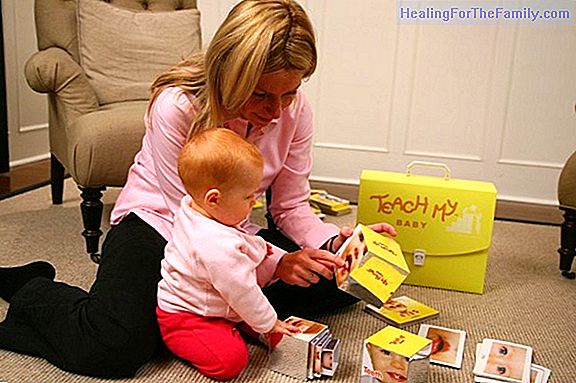Magnesium in the diet of babies and children
According to recent research, magnesium is a mineral that plays a fundamental role in the development and strengthening of bones , as well as calcium. The consumption of magnesium is essential in adulthood, however, experts have shown the importance of also being present in the diet of children. It
According to recent research, magnesium is a mineral that plays a fundamental role in the development and strengthening of bones, as well as calcium. The consumption of magnesium is essential in adulthood, however, experts have shown the importance of also being present in the diet of children.
It is well known that childhood nutrition must be healthy and balanced and must include the necessary supply of vitamins and minerals. One of them is magnesium.
Magnesium intake in the child's diet

Magnesium is not found in pure form in nature as metal, but is part of many compounds. We can find magnesium in different foods, especially in green leafy vegetables, fruits such as banana, apricot or avocado, nuts and almonds, beans and seeds or in brown rice or millet.
Magnesium, in addition to strengthening and developing the bones of children has other functions:
- is essential for the functioning of the nervous and muscular system and helps muscle contraction and relaxation
- helps regulate the level of sugar in blood
- regulates the heart rate
- favors sleep and relaxation
- produces energy
- affects the functioning of certain enzymes
- helps in evacuation relieving constipation
- in pregnant women also prevents premature delivery since helps keep the uterus relaxed.
Children with low magnesium intake may have side effects such as muscle weakness, drowsiness or excessive excitability. It can also cause muscle spasms, cramps, constipation, loss of appetite, apathy or fatigue.
How much magnesium the child's diet should have
The recommended daily doses of magnesium for children are:
- in babies up to 7 months: 30 milligrams
- babies from 7 months to 1 year: 75 milligrams
- babies of 1 year to 3 years: 65 milligrams
- children from 4 to 8 years old: 110 milligrams
- children from 9 to 13 years old: 240 milligrams












